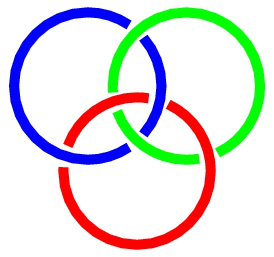Orateur
M.
M.V. Volkov
(Department of Physics, AlbaNova University Center,Stockholm University, 106 91 Stockholm, Sweden)
Description
Few-body systems with the Coulomb interaction are of great interest in atomic and molecular physics. However, solving the Coulomb scattering problem is very difficult from both theoretical and computational points of view because of the long-range nature of the Coulomb potential.
The asymptotic boundary conditions at infinity, which are rather complicated for the few-body scattering problem, become even more complicated for the Coulomb problem. Therefore, a method which allows solving the problem without using the asymptotic form of the solution could be an advantage.
One of such methods can be constructed with the use of the complex dilation approach. Namely, the total wave function of the system satisfies the homogeneous Schrödinger equation. Subtracting the incoming plane wave from the total solution, we get the driven Schrödinger equation for the function which behaves at infinity as the pure outgoing wave.
Applying then the complex scaling method, we reduce the outgoing wave to an exponentially decreasing function. Hence we can use the zero boundary condition at infinity when solving the problem.
This approach was shown to be applicable for exponentially decreasing potentials only [1]. If the potential decreases slower, then a divergence occurs. Rescigno et al showed in [2] that the method can be made converging for potentials decreasing faster than the Coulomb one. Namely, one needs to cut off the potential at rather far distance R, and then to apply the exterior complex scaling with the exterior radius R. However, this approach does not work for the Coulomb problem.
In the present work, we show how the approach outlined above can be generalized for few-body systems with unscreened Coulomb interactions. We prove this generalization analytically and then show numerically how it works for few systems with long-range interactions.
[1] J. Nuttall and H. L. Cohen Phys. Rev., 188, 1542 (1969)
[2] T. N. Rescigno, M. Baertschy, D. Byrum and C. W. McCurdy Phys. Rev. A 55, 4253 (1997)
Auteur principal
M.
M.V. Volkov
(Department of Physics, AlbaNova University Center,Stockholm University, 106 91 Stockholm, Sweden)
Co-auteurs
Dr
E.A. Yarevsky
(V. Fock Institute of Physics, St Petersburg State University, St Petersburg 198504, Russia)
Prof.
N. Elander
(Department of Physics, AlbaNova University Center,Stockholm University, 106 91 Stockholm, Sweden)
Prof.
S.L. Yakovlev
(V. Fock Institute of Physics, St Petersburg State University, St Petersburg 198504, Russia)

